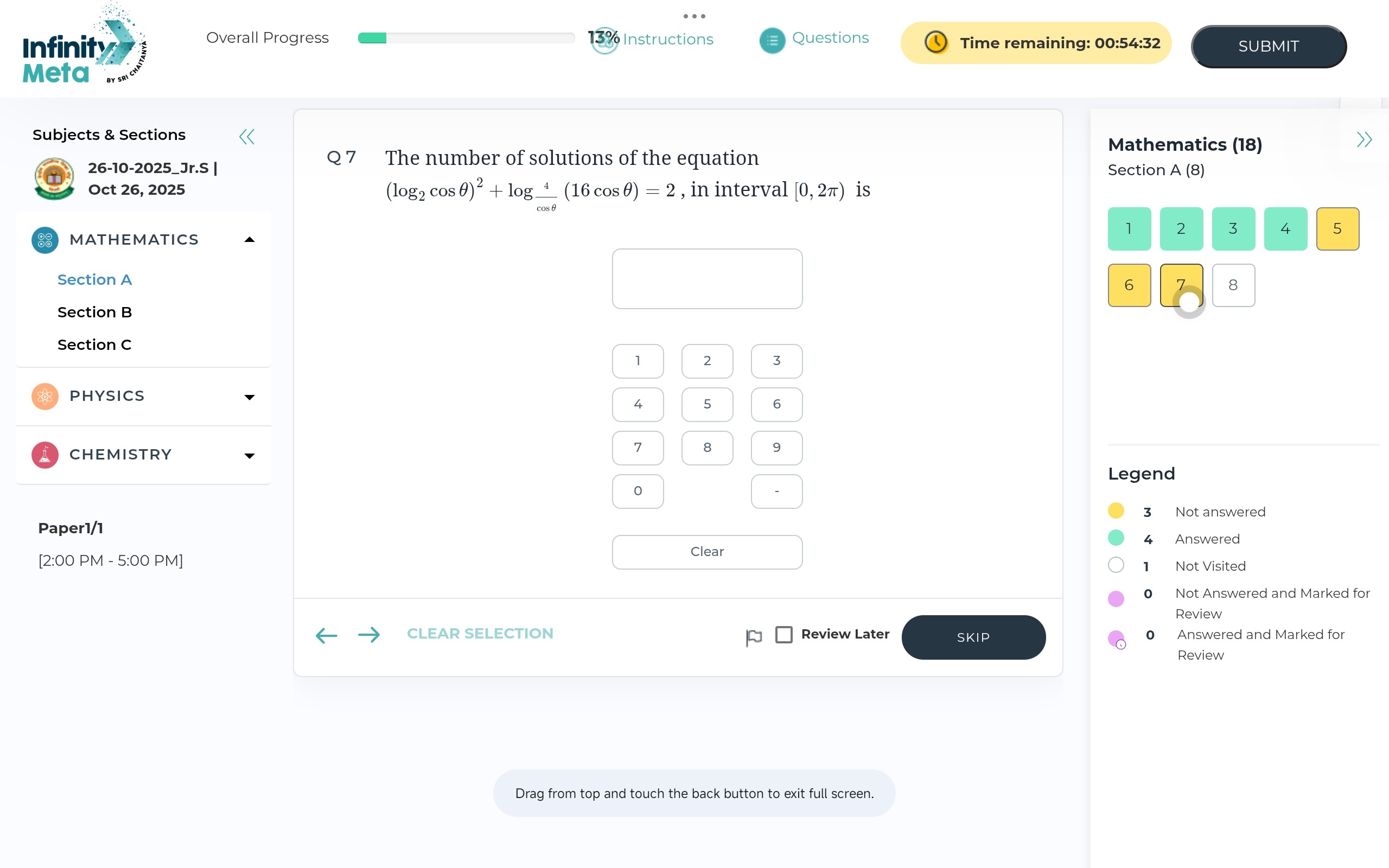Question
Question: The number of solutions of the equation \((\log_2 \cos \theta)^2 + \log_{\cos \theta}^4 (16 \cos \th...
The number of solutions of the equation (log2cosθ)2+logcosθ4(16cosθ)=2, in interval [0,2π) is

0
1
2
4
2
Solution
Let the given equation be (log2cosθ)2+logcosθ4(16cosθ)=2. The domain requires cosθ>0 and cosθ=1. In [0,2π), this means θ∈(0,π/2)∪(3π/2,2π), which implies 0<cosθ<1.
Assuming the notation logcosθ4(16cosθ) means log(cosθ)4(16cosθ): Let y=log2cosθ. Since 0<cosθ<1, we have y<0. The equation becomes y2+log(cosθ)4(16cosθ)=2. Using the change of base formula: log(cosθ)4(16cosθ)=log2((cosθ)4)log2(16cosθ)=4log2cosθlog216+log2cosθ=4y4+y. The equation is y2+4y4+y=2. y2+y1+41=2 y2+y1−47=0 Multiplying by 4y: 4y3+4−7y=0⟹4y3−7y+4=0. Let f(y)=4y3−7y+4. We need roots where y<0. f′(y)=12y2−7. For y<0, f′(y)=0 at y=−7/12. f(0)=4. f(−2)=4(−8)−7(−2)+4=−32+14+4=−14. Since f(−2)<0 and f(0)>0, there is a root y0∈(−2,0). The local maximum at y=−7/12 is f(−7/12)=(14/3)7/12+4>0. As y→−∞, f(y)→−∞. Thus, there is exactly one negative root y0. So, log2cosθ=y0, which means cosθ=2y0. Since y0∈(−2,0), 2y0∈(2−2,20)=(1/4,1). For any c∈(0,1), cosθ=c has two solutions in [0,2π). Thus, there are 2 solutions.
Assuming the notation logcosθ4(16cosθ) means logcosθ((16cosθ)4): The equation becomes y2+logcosθ((16cosθ)4)=2. y2+log2cosθ4log2(16cosθ)=2 y2+y4(4+y)=2 y2+y16+4=2 y2+y16+2=0 Multiplying by y: y3+16+2y=0⟹y3+2y+16=0. Let g(y)=y3+2y+16. g′(y)=3y2+2>0, so g(y) is strictly increasing. g(−2)=−8−4+16=4. g(−3)=−27−6+16=−17. There is one real root y0∈(−3,−2). So, log2cosθ=y0, which means cosθ=2y0. Since y0∈(−3,−2), 2y0∈(2−3,2−2)=(1/8,1/4). For any c∈(0,1), cosθ=c has two solutions in [0,2π). Thus, there are 2 solutions.
Both plausible interpretations lead to 2 solutions.
